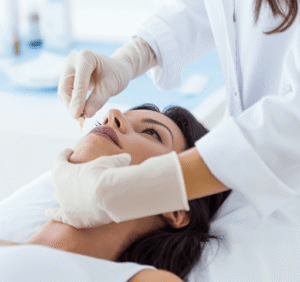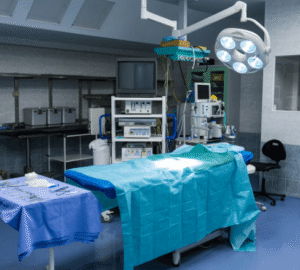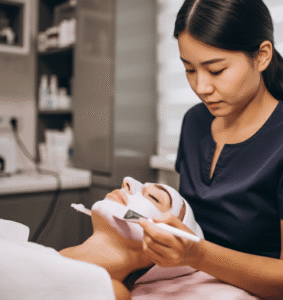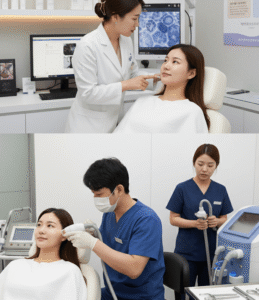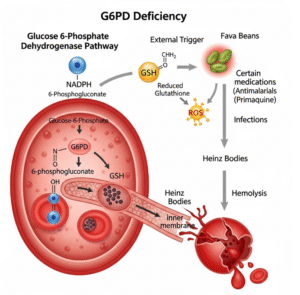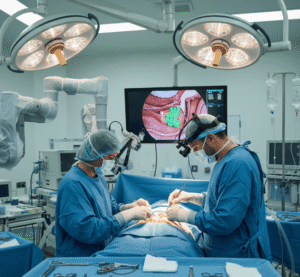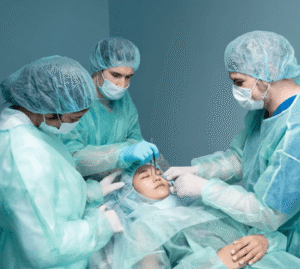Overview
Oral Allergy Syndrome (OAS), also known as pollen-food allergy syndrome, is a type of food allergy that occurs in people who are also allergic to certain pollen allergens. It typically causes itching, tingling, or swelling in the mouth, lips, throat, or face shortly after consuming certain raw fruits, vegetables, or nuts. OAS is generally mild but can be uncomfortable. In rare cases, it may cause more severe reactions. It is most common in adults and teenagers who already have hay fever or seasonal allergies.
What is Oral Allergy Syndrome?
Oral Allergy Syndrome is an allergic reaction caused by cross-reactivity between pollen proteins and proteins found in some plant-based foods. The immune system, already sensitized to pollen (like birch, ragweed, or grass), mistakenly reacts to similar proteins in raw foods. Cooking or peeling the food often destroys the proteins that cause the reaction, which is why cooked versions of the same foods usually do not trigger symptoms.
OAS is considered a localized allergic reaction and is different from classic food allergies that can cause systemic symptoms like hives, vomiting, or anaphylaxis.
Symptoms
Symptoms of OAS usually begin within minutes of eating the triggering food and are generally confined to the mouth and throat. Common symptoms include:
- Itching or tingling in the lips, tongue, throat, or mouth
- Mild swelling of the lips or tongue
- Scratchy throat
- Redness or irritation around the mouth
- In rare cases: hoarseness, difficulty swallowing, or throat tightness
Symptoms typically resolve on their own within 30 minutes to an hour.
Causes
OAS is caused by cross-reactivity between pollen proteins and food proteins. The body’s immune system mistakes proteins in food for the proteins found in pollen, triggering an allergic reaction. Common pollen and food cross-reactions include:
- Birch pollen: Apples, pears, carrots, celery, cherries, almonds, hazelnuts
- Ragweed pollen: Bananas, melons (especially cantaloupe and watermelon), zucchini, cucumber
- Grass pollen: Peaches, tomatoes, potatoes, oranges
The allergic reaction is generally only triggered by raw or uncooked foods, as cooking denatures the proteins.
Risk Factors
People more likely to experience Oral Allergy Syndrome include:
- Individuals with hay fever or seasonal allergic rhinitis
- Those allergic to birch, ragweed, or grass pollens
- Adults and teenagers (less common in children)
- People living in regions with high pollen exposure
- Those with a family history of allergies or atopic diseases
Complications
OAS is usually mild, but complications can occur in rare situations:
- More severe allergic reactions, including anaphylaxis (rare but possible)
- Persistent discomfort, especially during pollen season
- Avoidance of healthy foods due to fear of reaction
- Progression to more severe food allergies, though this is uncommon
People with a history of severe food allergies or asthma should be more cautious, as they may be at higher risk for more serious reactions.
Prevention
Preventive strategies focus on identifying trigger foods and minimizing reactions:
- Avoid eating raw versions of trigger fruits, vegetables, or nuts
- Peel fruits and vegetables — the highest concentration of reactive proteins is often in the skin
- Cook or bake foods to destroy allergenic proteins
- Avoid cross-contamination when preparing meals
- Manage seasonal allergies with antihistamines or immunotherapy to reduce sensitivity
- Carry antihistamines for quick symptom relief if needed
- Use allergy testing to identify specific pollen and food sensitivities
Treatment Options in Korea
South Korea offers high-quality allergy care and diagnostics, including for oral allergy syndrome. Diagnosis and treatment are usually handled by allergists or ENT specialists. Management options include:
- Allergy testing (skin prick tests, IgE blood tests) to identify cross-reactive allergens
- Antihistamines to control mild allergic reactions
- Avoidance education, including dietary counseling and meal planning
- Allergy immunotherapy (allergy shots) for the underlying pollen allergies, which may reduce or eliminate OAS over time
- Emergency action plans for those at risk of severe reactions
Major hospitals like Asan Medical Center, Seoul National University Hospital, and Samsung Medical Center provide comprehensive allergy clinics offering diagnosis, treatment, and long-term care for OAS and related allergic conditions.


